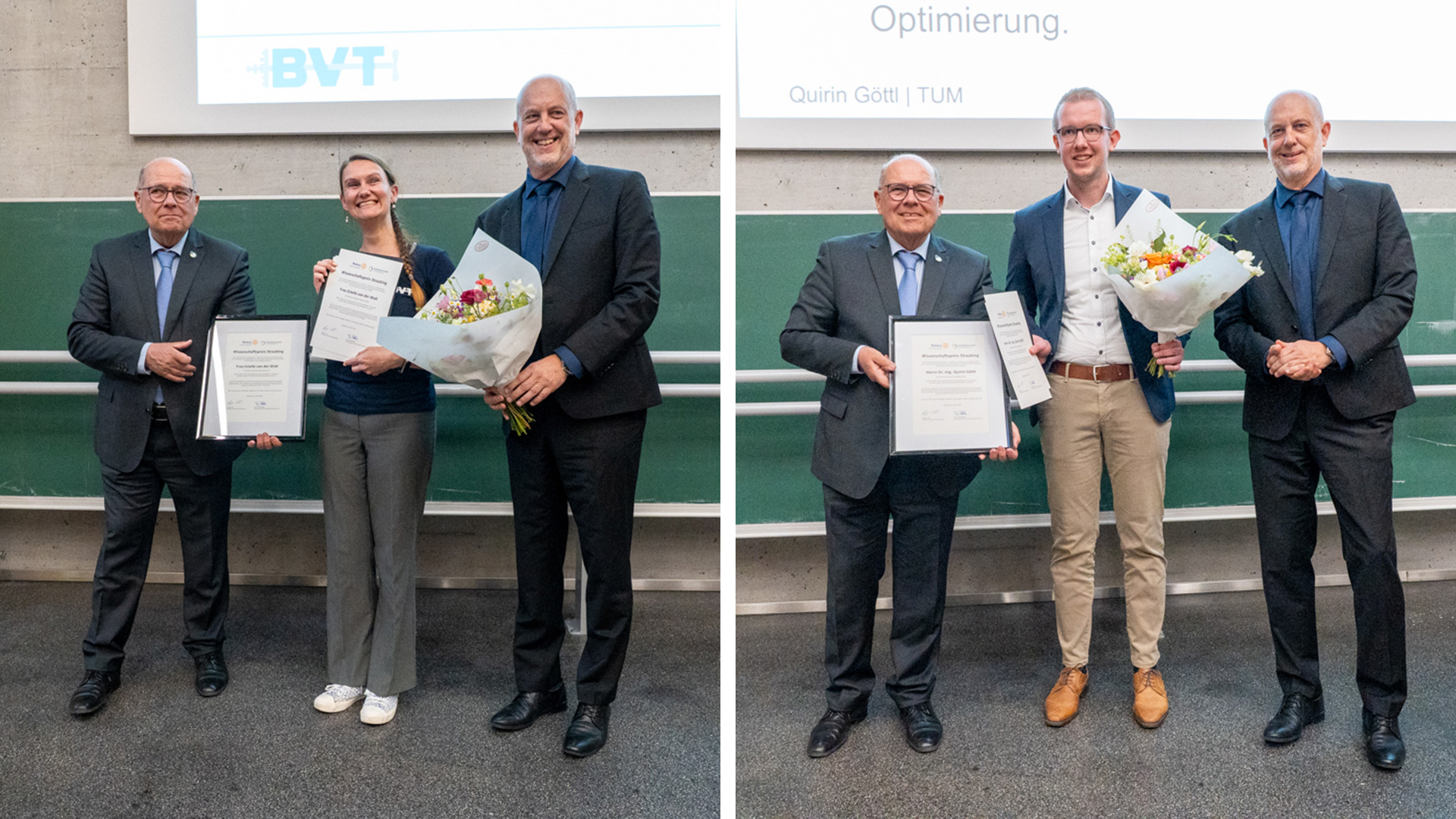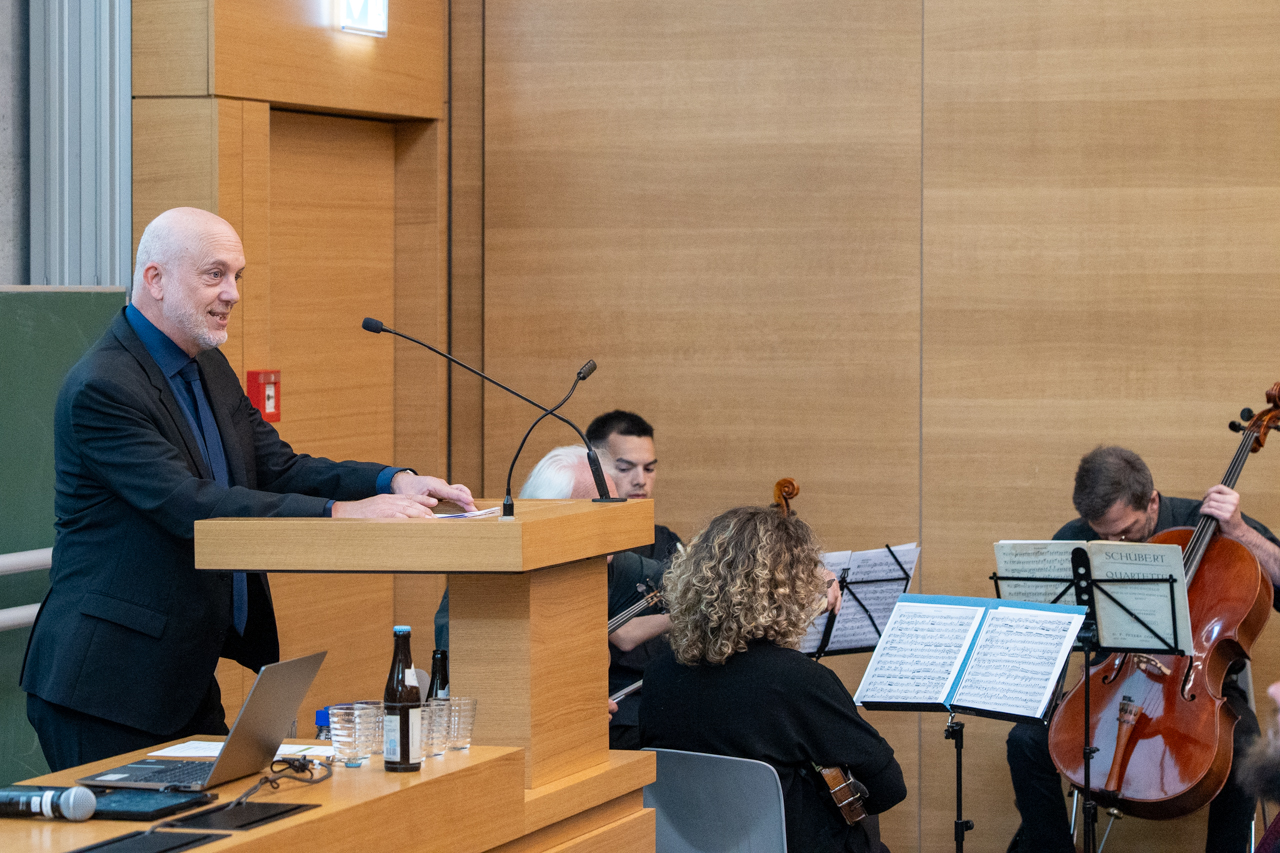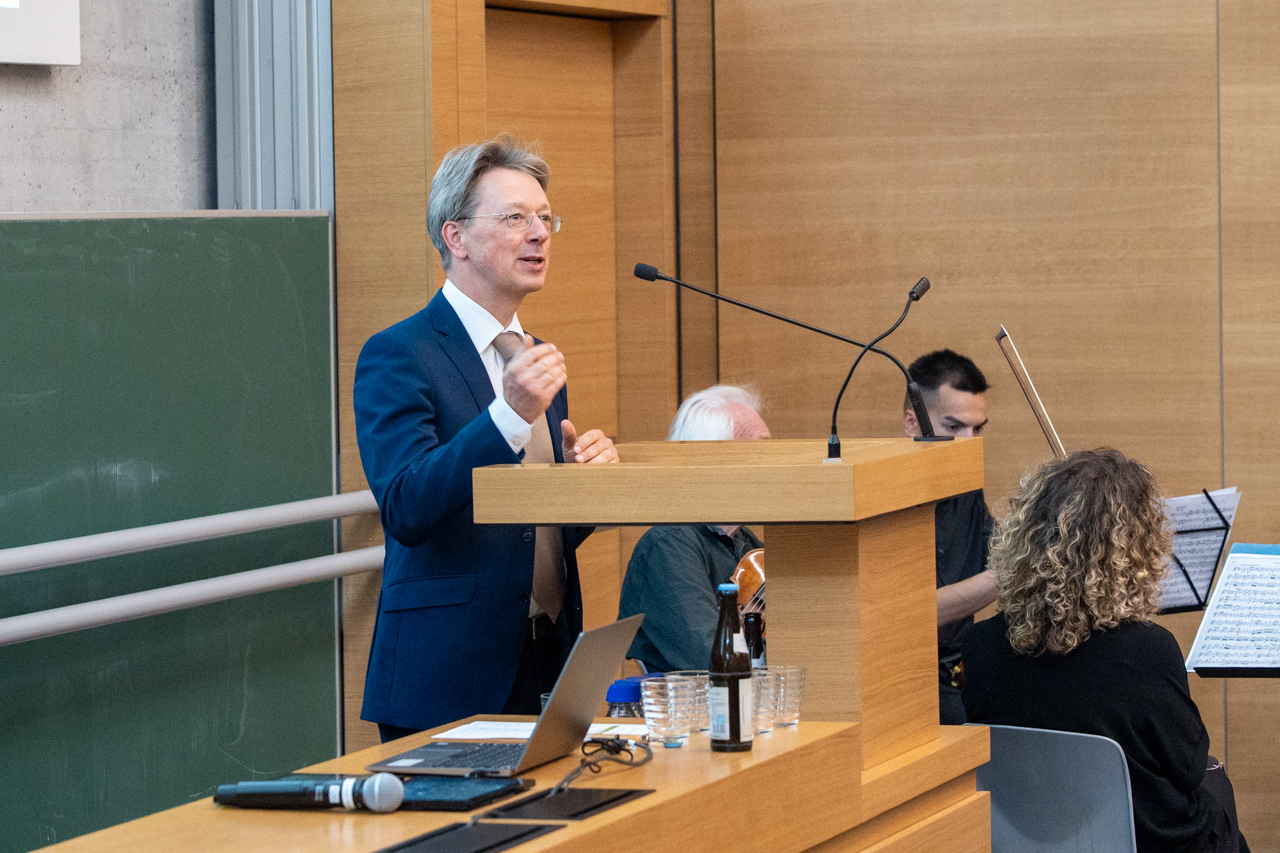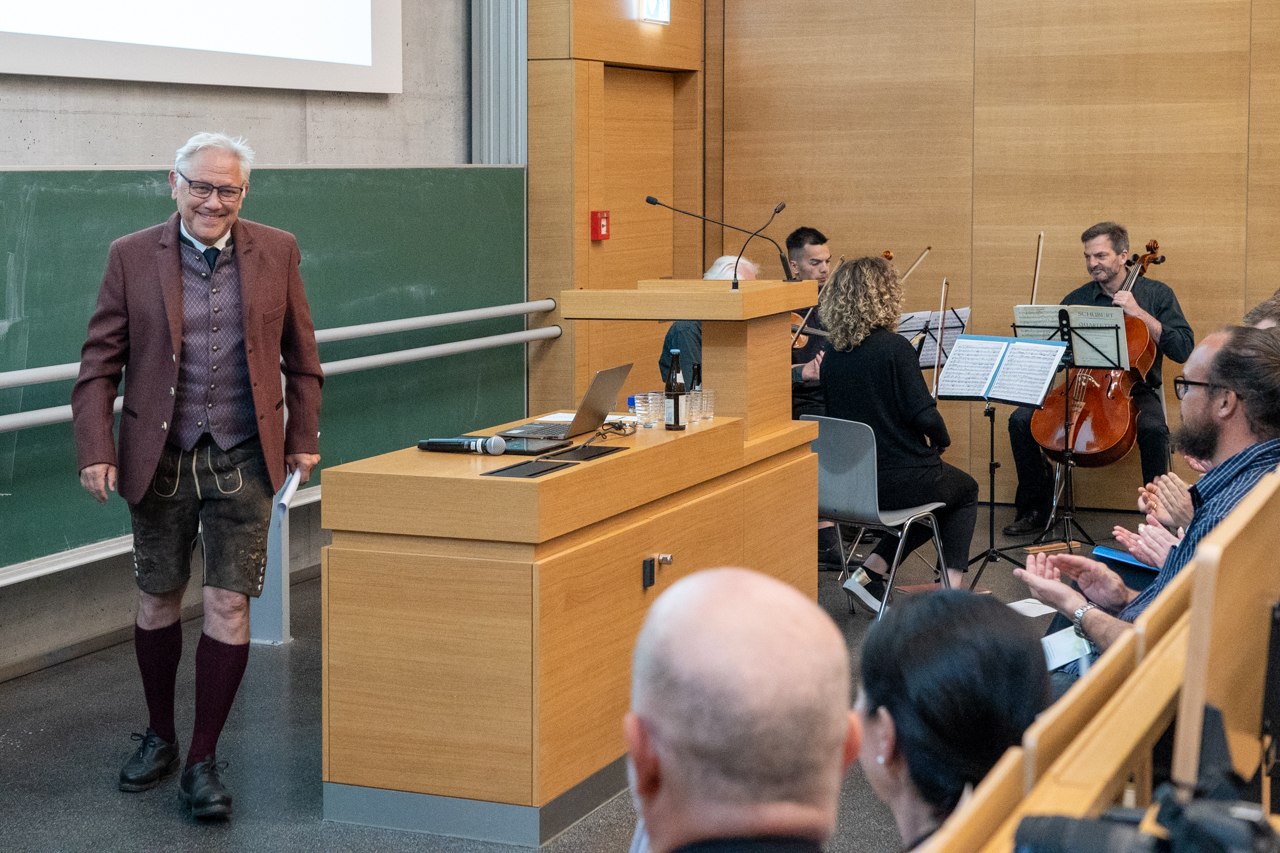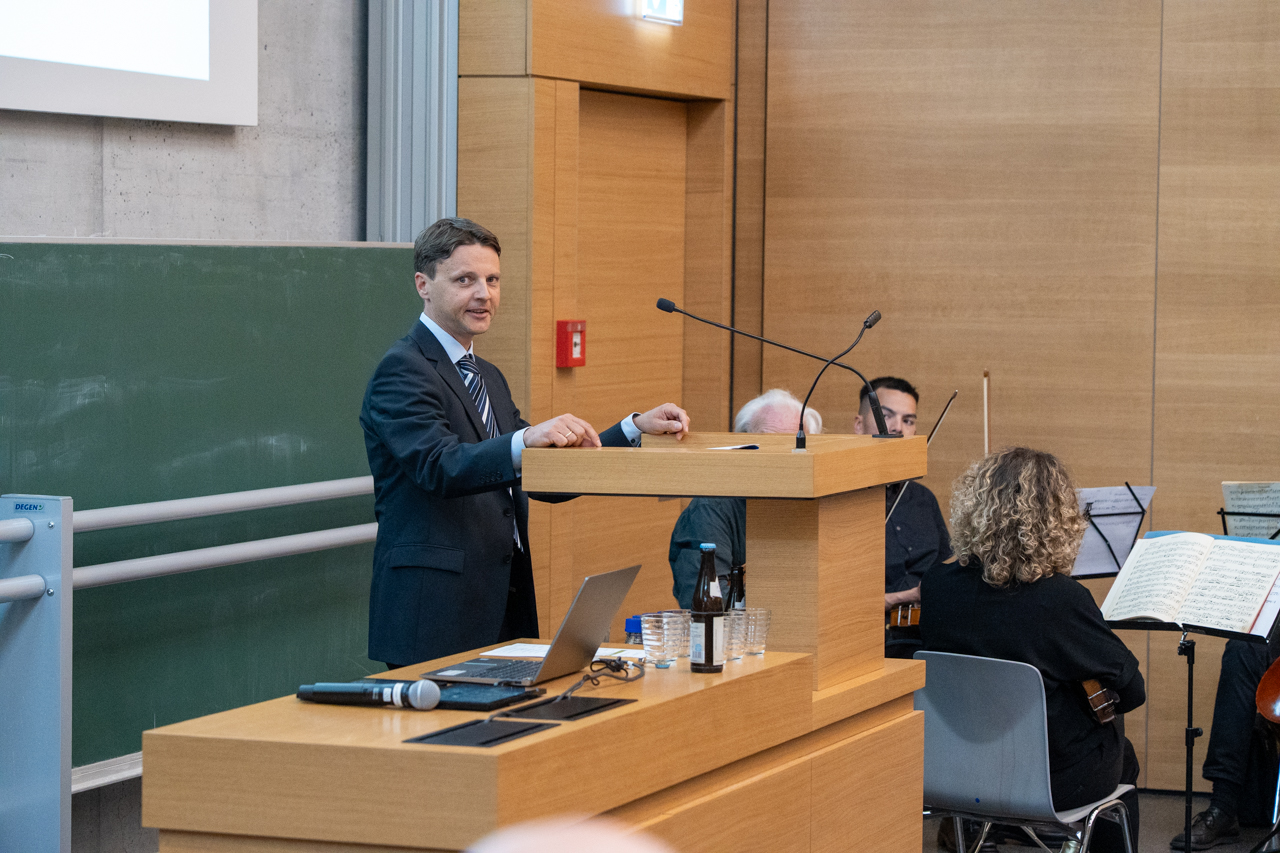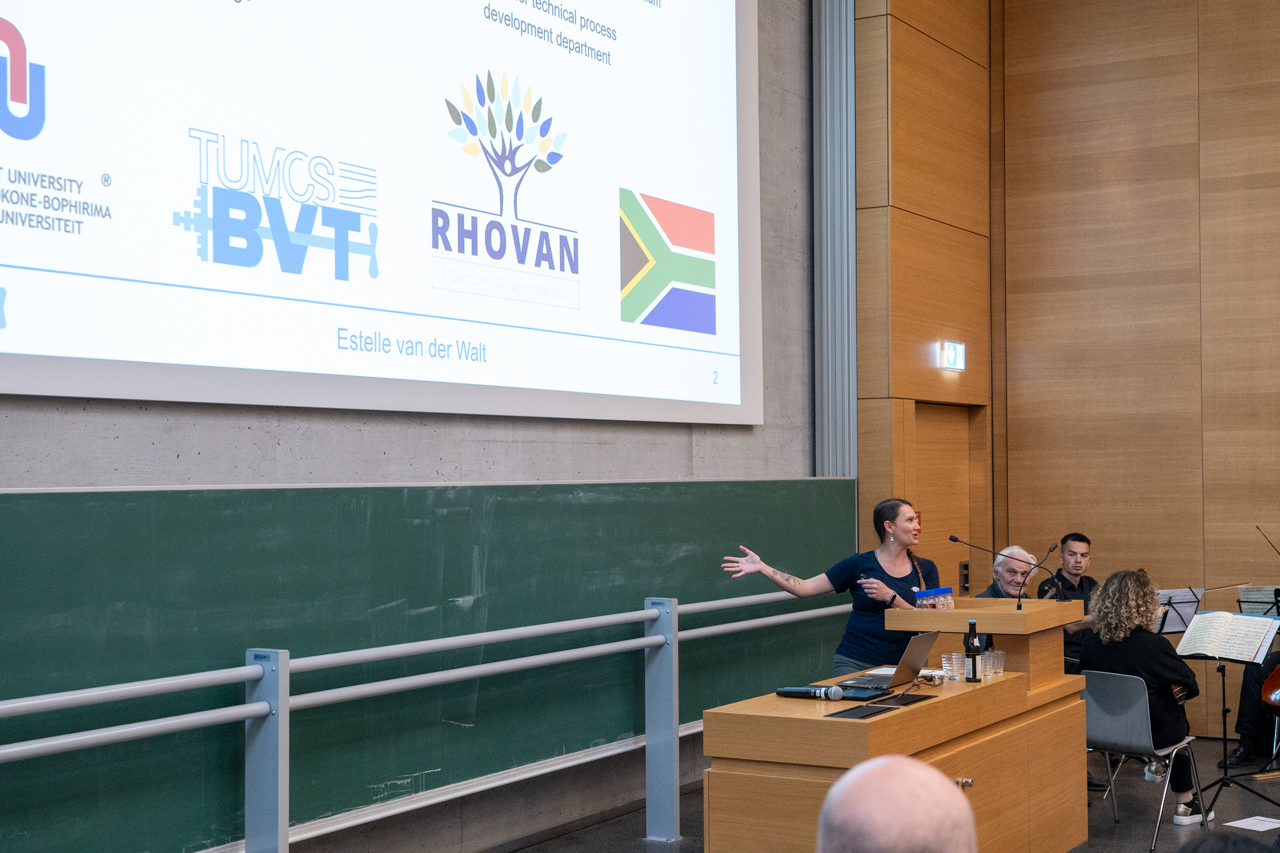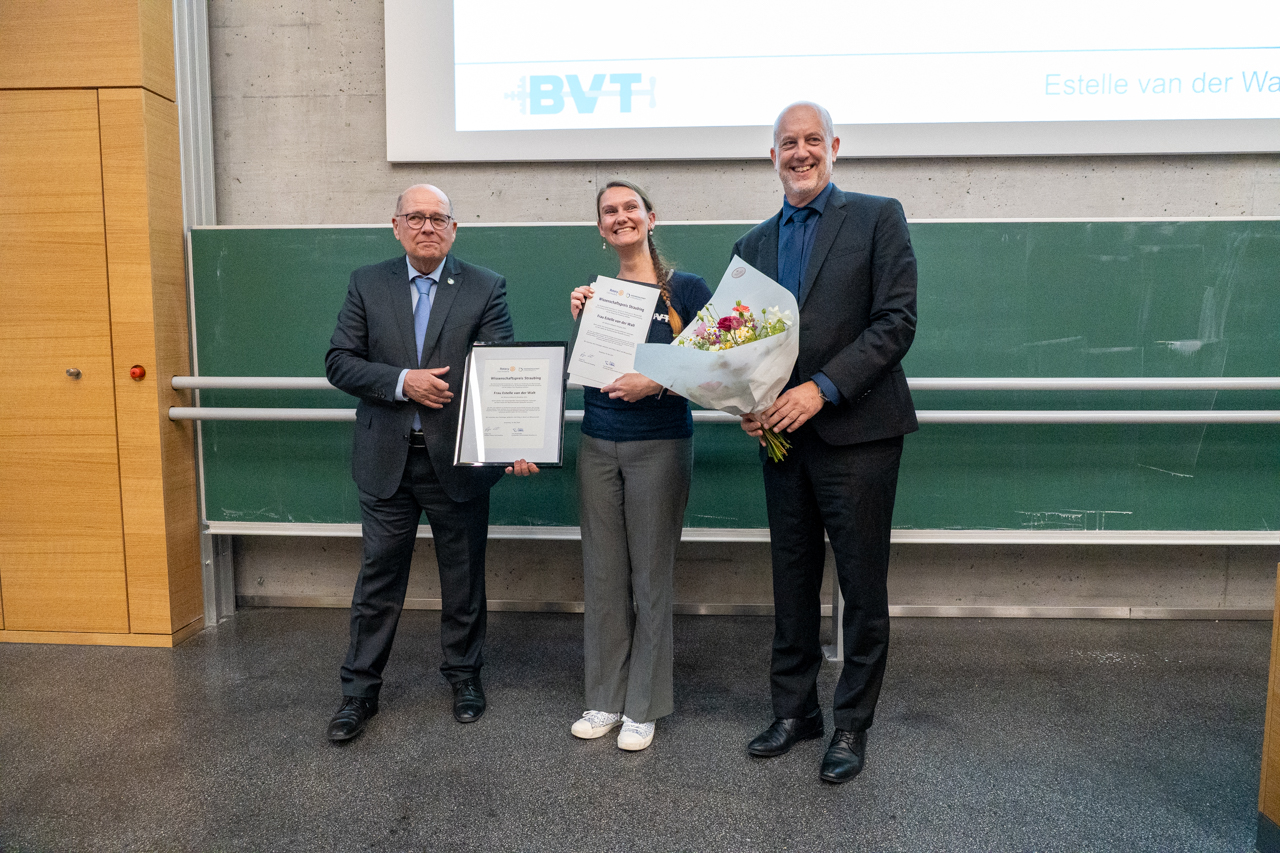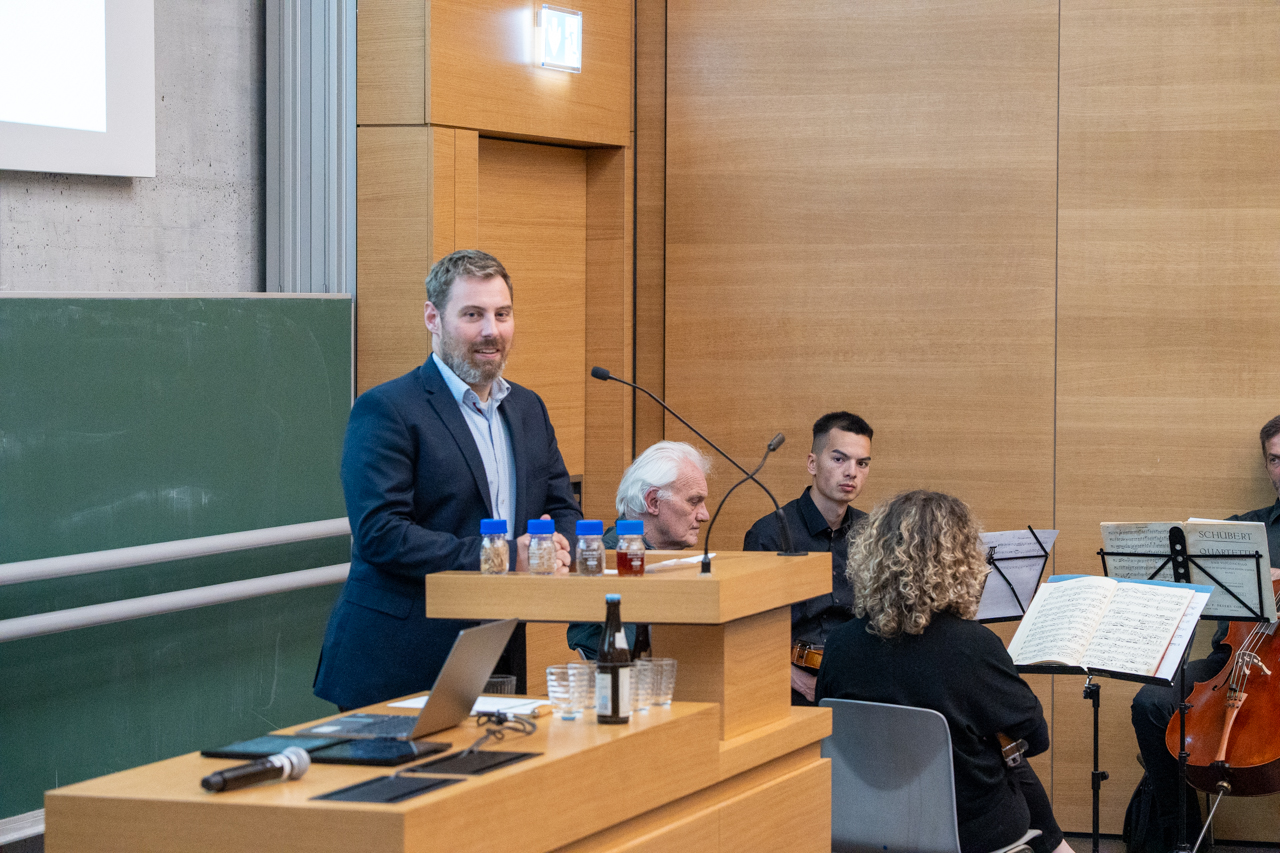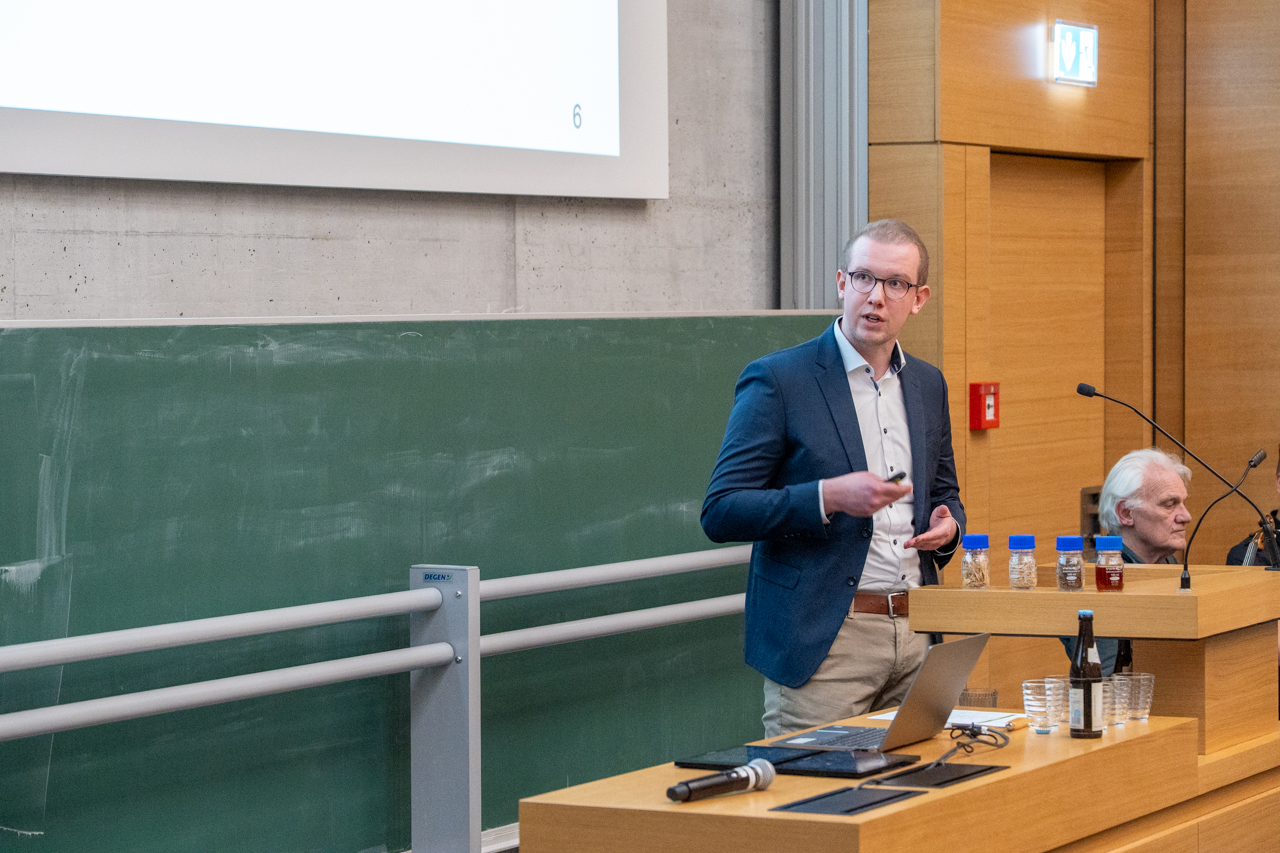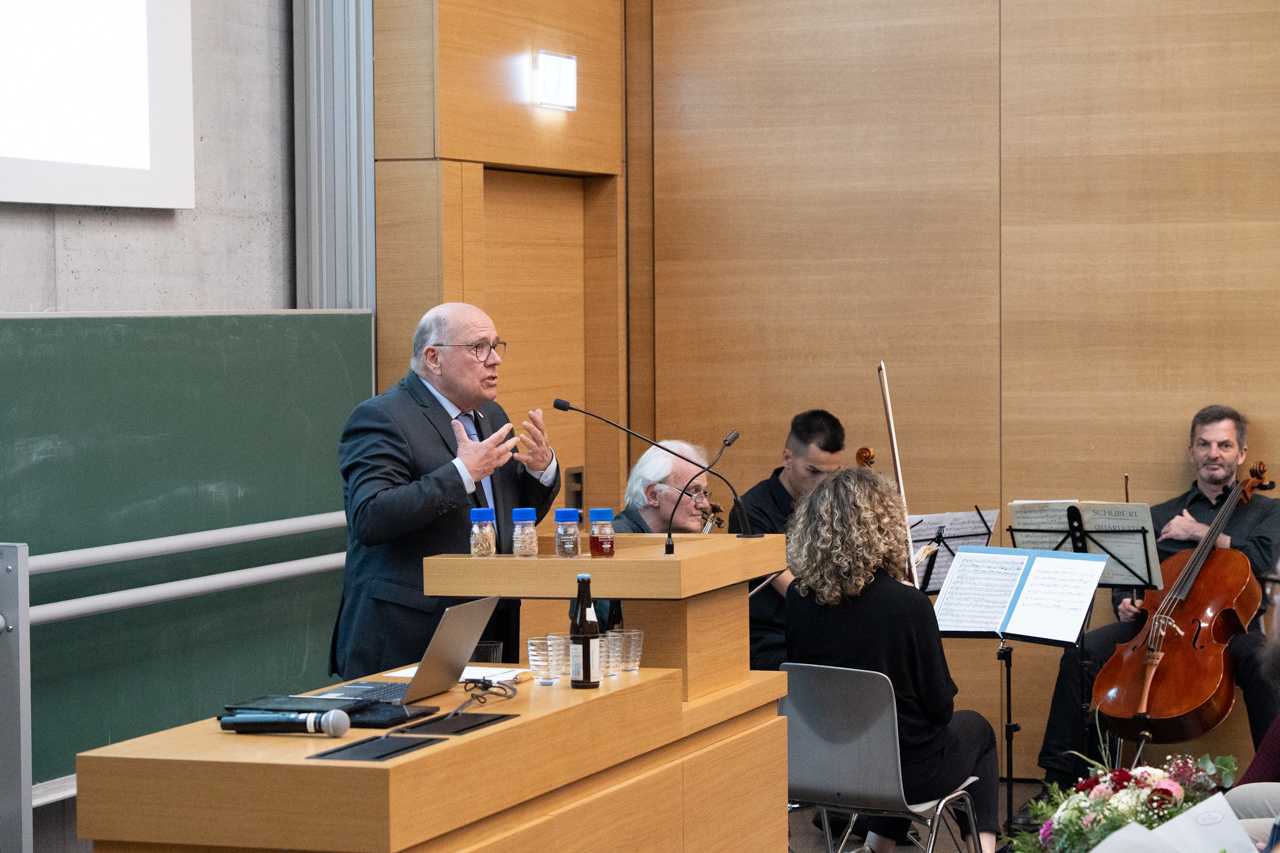Rotary President Gregor Carl welcomed the audience. The host, Prof. Dr. Volker Sieber, Rector of the TUM Campus Straubing, called the Wissenschaftspreis “a highlight of the campus year” and Mayor Dr. Albert Solleder, dressed in traditional costume, interpreted the combination of laptop and lederhosen in his welcoming address. At the TUM Campus Straubing, the balancing act between tradition and cutting-edge research is convincing.
Agricultural residues as a resource
The laudatory speech for Estelle van der Walt's Master's thesis was given by the supervising professor Prof. Dr.-Ing. Michael Zavrel - in English, as was the following presentation by the prizewinner on her topic “Production of hydrolysate from different agricultural residues”. To put it simply: agricultural residues (wheat straw, winter barley straw, potato roots, sugar beet leaves) are treated to produce a sugary solution that is suitable as a substrate for microorganisms. The latter can be used to produce fuel, animal feed additives and chemical raw materials. A step towards a cycle-oriented bioeconomy that is independent of fossil resources and does not compete with human or animal nutrition. Prof. Zavrel spoke of an “excellent Master's thesis”, inspiring, sustainable, practical and solution-oriented. Zavrel also praised van der Walt's willingness to help and her remarkable talent for improvisation (from kitchen machines to eBay classified ads), after she had started in a freshly set-up laboratory that still lacked some equipment at the time.
Estelle von der Walt is South African, has already completed a Bachelor's degree there and worked in industry for ten years, moved to Straubing to do her Master's in chemical biotechnology at the TUM campus and, in her own words, “fell in love with Straubing”. She is now working on her doctorate here.
Artificial intelligence in process engineering
The laudatory speech for Dr.-Ing. Quirin Göttl, a “true Lower Bavarian” from Siegenburg in the Kelheim district, was held by his supervising professor Dr.-Ing Jakob Burger. The topic of the dissertation: “Automated flowsheet synthesis via reinforcement learning and linearized thermodynamic models”. Burger confessed that the unwieldy title brought a gleam to the eyes of the experts, but rather disturbing looks in a cocktail bar. What lies behind the summa cum laude dissertation is how AI (artificial intelligence) can be used to design new chemical processes. Göttl has found “solutions of astounding elegance”, opened up a new field of research, pushed boundaries and raised so many questions that three other dissertations can deal with them. The dissertation caused a stir internationally, as far away as Japan.
It is astonishing that Göttl is neither a computer scientist nor a chemical process engineer, but originally a banker with a master's degree in mathematics. Today, Göttl, who spent four years working on his dissertation, conducts research at the Fraunhofer Institute for Integrated Circuits IIS in Nuremberg. Göttl rhetorically and light-footedly explained to the audience what lies behind the “cumbersome title”, namely how AI assistance systems help process engineers to plan chemical processes using flow diagram simulation. He has taught the AI to think like an engineer, i.e. to develop intuition, said Göttl. Through training, repetition and rewards. And what the trained banker also kept in mind was that it should also be financially advantageous for the industry using it. AI could be used to solve very specialized questions. Göttl is certain that “this is a field in which a lot is still happening”.
“A master of organization”
Student representatives Luise Hönisch, Lioba Ostertag and David Kornherr presented the Student Teaching Award 2025 for the best lecturer on campus from the students' point of view to Prof. Dr.-Ing. Michael Zavrel, who has been researching and teaching in the field of bioprocess engineering at the Straubing TUM campus since 2022. The prize is awarded annually. According to Luise Hönisch, the prizewinner is a master of structure and organization and makes complex theories understandable through practical examples. He is appreciated for his passion for his subject and his commitment to the success of his students. Teaching is not the main task of professors, so the passion and inspiration with which he imparts knowledge in his demanding subject is all the more commendable.
